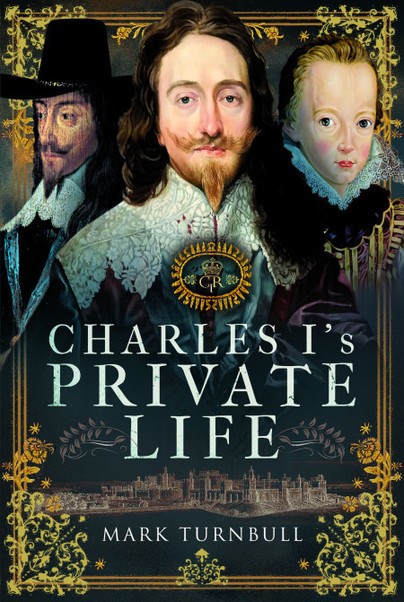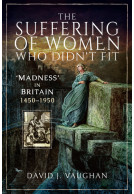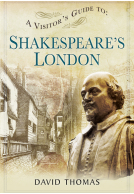Charles I's Private Life (ePub)
Imprint: Pen & Sword History
File Size: 14.6 MB (.epub)
Pages: 208
Illustrations: 20 mono
ISBN: 9781399082914
Published: 30th August 2023
| Other formats available - Buy the Hardback and get the eBook for £1.99! | Price |
|---|---|
| Charles I's Private Life Hardback Add to Basket | £25.00 |
The execution of King Charles I is one of the well-known facts of British history, and an often-quoted snippet from our past. He lost the civil war and his head. But there is more to Charles than the civil war and his death. To fully appreciate the momentous events that marked the twenty-four years of his reign, and what followed, it’s important to understand the man who was at their epicentre.
Both during his lifetime, and in the centuries since, opinion of Charles is often polarised; he is either Royal Martyr or Man of Blood. Amidst these extremes, what is frequently overshadowed is the man himself. Propaganda still clouds his personality, as do the events of his last seven years of life.
The first half of his life has not been explored in detail. As a sickly second son of the first King of Great Britain, these years shed light on the development of Charles’s character. Key elements of his final days also remain lost to us, such as certain identification of his executioners. Investigating new evidence, an entirely new candidate is proposed. Persistent myths surrounding his health and supposed unwillingness to compromise are also addressed.
There are many biographies, but this most intimate work draws upon fresh viewpoints and contemporary letters, some never before used. Penetrating the veil of monarchy and getting to the heart of the man through his relationships, the reader is brought closer than ever to the real Charles Stewart.
A brave, principled and dutiful man, he was politically flawed and lacked the ruthlessness needed to steer his three kingdoms beyond the crossroads at which they arrived. Above all, he is a character who shares much in common with us all.
"This is the story of the spare who became the heir: what shaped him - and what became of him. Mark Turnbull helps us understand Charles the king as Charles the man" Leanda de Lisle
Mark Turnbull’s biography is well-written (the introduction particularly powerful, I felt), and backed by his utilisation of numerous archival documents from around the United Kingdom, combined with his clear passion for history, gives readers a fresh, vital voice. Turbull’s work speaks for itself and is a lovely addition to the study of Stuart-era history. I very much look forward to his next book, which is a biography of Prince Rupert of the Rhine.
Andrea Zuvich
As featured in
Daily Star
'Charles' killer named'
This is the most enjoyable kind of popular history, a lively and accessible introduction to one of England's most disastrous kings for those who have not yet made his acquaintance.
Ronald Hutton
Article: Kingdom of Fife
The Courier (Fife)
Article: Spooky parallels between these royal princes born almost 400 years apart
The Sunday Post (Dundee)
Engaging, easy-to-read, and compassionate, this book offers a new look at the reign of Charles I. Often polarized as either martyr or tyrant, he emerges in this intimate biography as a complex man. Starting with his overlooked early years as a sickly second son, the book delves into Charles' character development, and challenges common myths about his supposed unwillingness to compromise. Drawing on fresh perspectives and unpublished letters, it portrays Charles as a principled yet politically flawed man whose lack of ruthlessness led to his downfall.
NetGalley, Andrea Romance
After years – indeed, many decades – of the Tudor dynasty hogging the limelight of popular historical fiction and nonfiction, recently the Stuarts have come into their own. Numerous authors have begun turning their attention to this previously-overlooked dynasty and there has never been a better time to see the much-maligned Stuarts through fresh eyes. In Charles I’s Private Life, Mark Turnbull provides a stunning new addition to Stuart historiography; as he demonstrates, only by focussing on Charles the man is it possible to understand Charles the king.
Steven Veerapen, author of Elizabeth and Essex: Power, Passion, and Politics
In some ways, Turnbull has set himself a difficult task. As many excellent authors have shown in the past, Charles was one of the most complex monarchs ever to have sat on the thrones of England, Scotland, and Ireland. His reigns – and their problems, not least the Civil Wars – are thus best understood by analysis of what made Charles Stuart what he was: proud; arrogant; loving; deeply invested in the idea of family; as deeply invested in the idea of absolute monarchy. Charles, as Turnbull shows, was neither hero or villain. He was, rather, a man whose ideas were deeply entrenched by his experiences, upbringing, and relationships. Through examining these, this turbulent period can become far easier to understand.
What really sets Charles I’s Private Life apart from other tomes on the king is the attention Turnbull pays to the king’s youth. Here, readers will find genuinely new, incredibly valuable information about Scotland and his experiences there – information that will pay dividends when the Wars of the Three Kingdoms approach. In tracing the reign of James VI in Scotland, and that king’s accession to the English throne as James I, Turnbull is careful never to let either events or other personalities overtake Charles’s story – what emerges is a tale of the prince’s development in light of a canny but absolutist father and a doting, politically astute mother. This approach continues into Charles’s adulthood; his relationships with such figures as Buckingham and, of course, his wife, Henrietta Maria, are traced always in how they shine a light on the attitudes, policies, and personality of Charles himself.
The book is, further, absolutely stuffed with historical titbits (from reports of courtly thefts after progresses to catty comments from the Venetian ambassador on Charles’s handling of religious matters) drawn, clearly, from impeccable research. What results is a deeply rewarding narrative history which builds the colourful, divided world of Caroline England and sets the scene for a sensitive account of the Civil Wars and Charles’s role in them. Thankfully, Turnbull is skilled enough an author that this level of detail never feels intrusive or weighty – Charles I’s Private Life provides a pacey, pithy read, as rich in fine one-liners as in political analysis. I’ve no doubt this book will be immediately welcome on the shelves of students of the period as well as general readers hoping to understand this most elusive of kings.
About Mark Turnbull
Mark Turnbull has been fascinated with the Wars of the Three Kingdoms and King Charles I since the age of ten, following a visit to Helmsley Castle, in North Yorkshire. Whilst regularly researching and writing articles about the period, he also discusses aspects with leading historians in his podcast ‘CavalierCast - the Civil War in Words’. He has written four works of historical fiction set in the civil wars. Mark lives in County Durham.
Born on this day - Charles I
19th November 1600
Charles I ascended the thrones of England, Scotland, and Ireland in 1625, succeeding his father, King James I and VI. Despite being the second son, as his elder brother succumbed to typhoid fever in 1612, Charles faced turmoil during his rule. Marrying a Catholic intensified political and religious tensions, leading to the English Civil War and his execution for high treason.
Charles I marries French princess Henrietta Maria
13th June 1625
English king Charles I marries French princess Henrietta Maria at Canterbury cathedral in Canterbury, England

















